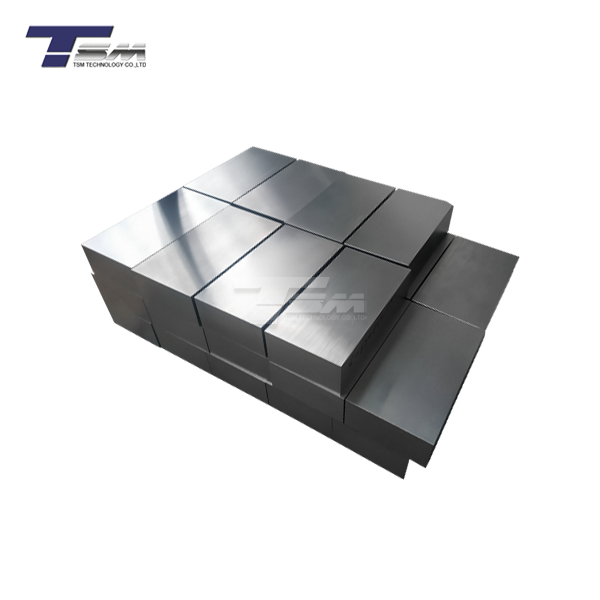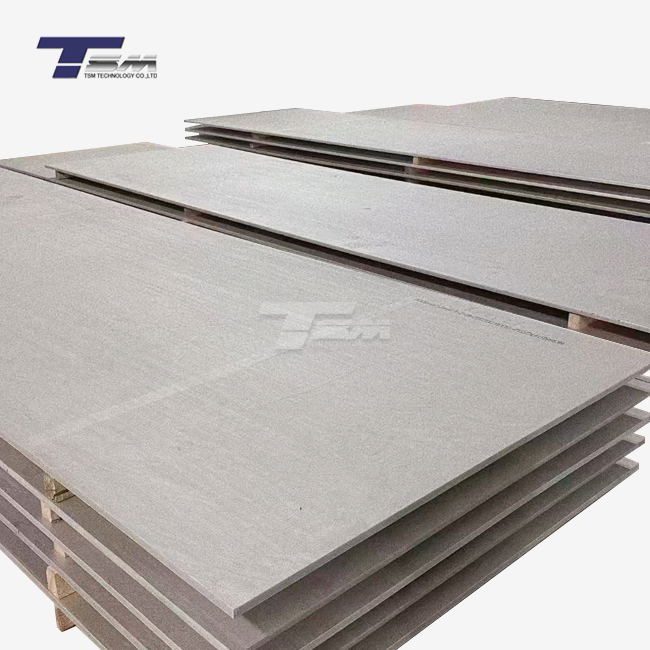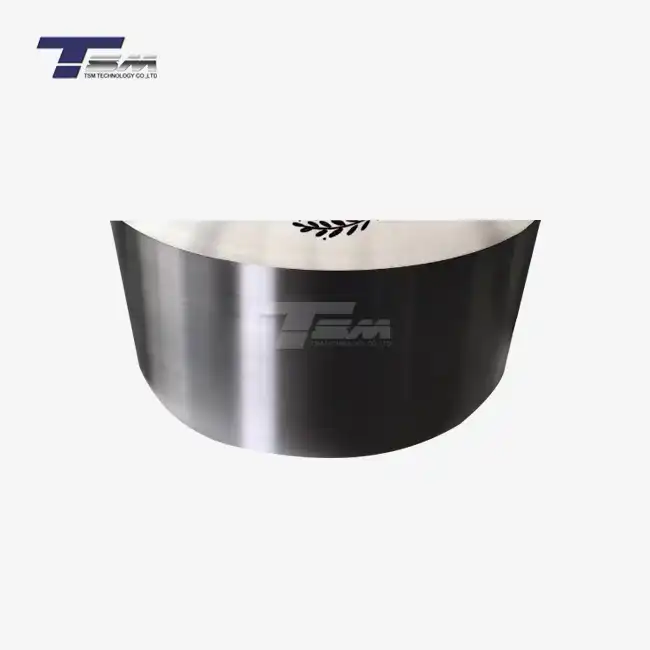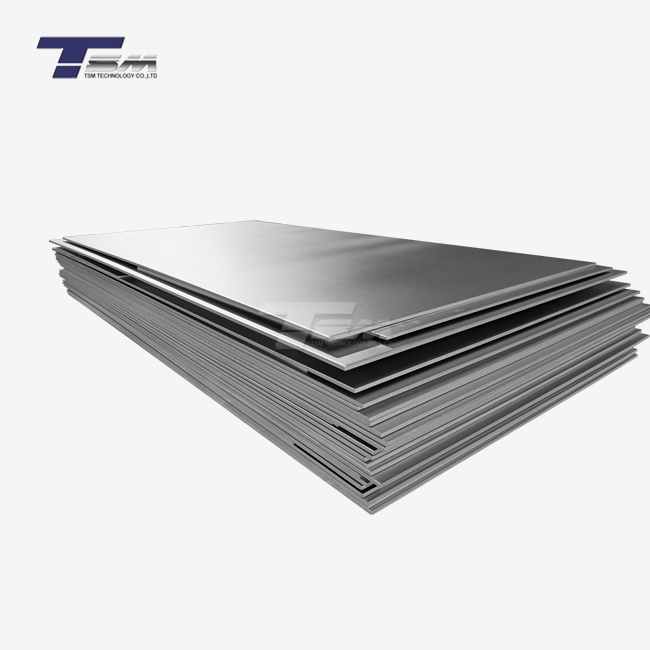The Importance of Tensile Testing for Inconel 600 Bars
Understanding Inconel 600 Properties
Inconel 600, a nickel-chromium alloy, is renowned for its exceptional resistance to corrosion and heat. This superalloy maintains its strength and ductility across a wide temperature range, making it ideal for demanding environments. The unique composition of Inconel 600 round bars, typically containing about 72% nickel, 14-17% chromium, and 6-10% iron, contributes to their outstanding performance in extreme conditions.
These alloy 600 round bars exhibit remarkable resistance to oxidation and carburization, even at temperatures exceeding 1000°C. Their ability to withstand high-temperature corrosion, stress-corrosion cracking, and pitting makes them invaluable in various industrial applications. The combination of strength and corrosion resistance allows Inconel 600 bars to maintain structural integrity in aggressive chemical environments and high-temperature settings.
The Role of Tensile Testing in Quality Assurance
Tensile testing plays a pivotal role in ensuring the quality and reliability of Inconel 600 bars. This standardized procedure provides crucial data on the material's mechanical behavior under stress, offering insights into its strength, ductility, and overall performance. By subjecting Inconel 600 round bars to controlled tensile forces, manufacturers can verify that each batch meets the required specifications.
The test results offer a comprehensive profile of the material's properties, including yield strength, ultimate tensile strength, and elongation. These parameters are essential for engineers and designers who rely on accurate material data to create safe and efficient components. Tensile testing also helps identify any potential defects or inconsistencies in the manufacturing process, ensuring that only high-quality Inconel 600 bars reach the end-users.
Key Parameters Measured in Tensile Testing
During tensile testing of Inconel 600 bars, several critical parameters are measured:
- Yield Strength: The stress at which the material begins to deform plastically
- Ultimate Tensile Strength: The maximum stress the material can withstand before failure
- Elongation: The extent to which the material stretches before breaking
- Modulus of Elasticity: A measure of the material's stiffness
- Reduction in Area: The decrease in cross-sectional area at the point of fracture
These measurements provide a comprehensive understanding of the Inconel 600 bar's mechanical behavior, allowing engineers to predict its performance under various loading conditions and environments. The data obtained from tensile testing is crucial for designing components that can withstand the rigorous demands of high-temperature and corrosive applications.
Tensile Testing Procedures for Inconel 600 Round Bars
Sample Preparation and Test Setup
Proper sample preparation is crucial for accurate tensile testing of Inconel 600 round bars. The test specimens are carefully machined from the alloy 600 round bar to specific dimensions, ensuring uniformity and consistency across all samples. The standard shape for tensile test specimens is typically a cylindrical "dog bone" shape, with a reduced cross-section in the middle where deformation is expected to occur.
The test setup involves securing the prepared Inconel 600 bar specimen in the grips of a tensile testing machine. These machines are equipped with highly sensitive load cells and extensometers to measure force and elongation accurately. The testing environment is controlled to maintain consistent temperature and humidity, as these factors can influence the material's behavior.
Conducting the Tensile Test
During the tensile test, the Inconel 600 round bar specimen is subjected to a gradually increasing uniaxial force. The machine applies this force at a constant rate, typically measured in millimeters per minute. As the force increases, the specimen elongates, and the testing machine records the relationship between the applied force and the resulting elongation.
Throughout the test, the machine continuously monitors and records data, capturing the entire stress-strain curve of the Inconel 600 bar. This curve provides valuable information about the material's elastic and plastic deformation behaviors. The test continues until the specimen fractures, allowing for the determination of the ultimate tensile strength and total elongation.
Data Analysis and Interpretation
After the tensile test, the raw data is analyzed to extract meaningful information about the Inconel 600 bar's properties. The stress-strain curve is plotted, and key points are identified, such as the yield point and the ultimate tensile strength. From this data, engineers can calculate important parameters like the modulus of elasticity and the percent elongation.
Interpreting the results requires expertise in materials science and engineering. The data is compared against established standards and specifications for Inconel 600 to ensure compliance. Any deviations from expected values are carefully scrutinized, as they may indicate issues with the material composition or manufacturing process. This analysis is crucial for maintaining the high quality and reliability of Inconel 600 round bars used in critical applications.
Applications and Implications of Tensile Test Results
Engineering Design Considerations
The results obtained from tensile testing of Inconel 600 bars have profound implications for engineering design. Engineers use this data to determine the appropriate dimensions and configurations of components made from alloy 600 round bars. The yield strength informs decisions about the maximum allowable stress in a design, ensuring that components operate safely within their elastic range.
Understanding the ultimate tensile strength of Inconel 600 bars allows designers to incorporate appropriate safety factors into their calculations. This is particularly crucial in applications where failure could have catastrophic consequences, such as in aerospace or nuclear power plants. The elongation data provides insights into the material's ductility, which is essential for predicting behavior under complex loading conditions and designing components that can withstand deformation without failure.
Quality Control and Material Certification
Tensile testing plays a vital role in the quality control process for Inconel 600 round bars. Manufacturers use the test results to verify that each batch of material meets the required specifications. This ensures consistency across production runs and helps maintain the high standards expected of Inconel 600 products.
The data from tensile tests is often included in material certification documents, providing customers with assurance of the product's quality and performance characteristics. These certifications are crucial for industries with stringent regulatory requirements, such as aerospace and nuclear power generation. They allow end-users to trace the material properties back to specific production batches, enhancing traceability and accountability throughout the supply chain.
Continuous Improvement and Material Development
Beyond immediate quality control, tensile test results contribute to the ongoing improvement and development of Inconel 600 bars. By analyzing trends in test data over time, manufacturers can identify opportunities to enhance their production processes and refine material compositions. This continuous feedback loop drives innovation in alloy development, potentially leading to new grades of Inconel with improved properties.
Researchers and metallurgists use tensile test data as a foundation for developing new heat treatments or processing techniques that could enhance the strength or ductility of Inconel 600 round bars. This ongoing research ensures that alloy 600 round bars continue to meet the evolving demands of advanced engineering applications, pushing the boundaries of what's possible in high-performance materials.
Conclusion
Tensile testing is an indispensable tool in verifying the strength and quality of Inconel 600 bars. This rigorous process provides critical data on yield strength, ultimate tensile strength, and elongation, enabling engineers to design components with confidence. For manufacturers and end-users alike, tensile testing ensures that Inconel 600 round bars meet the exacting standards required for high-performance applications. As industries continue to push the boundaries of material performance, the role of tensile testing in validating and improving alloy 600 round bars remains crucial, driving innovation and reliability in the world of high-performance nickel alloys.
Contact Us
For more information on our premium Inconel 600 products and our comprehensive testing procedures, please don't hesitate to reach out. Our team of experts is ready to assist you in selecting the right materials for your specific needs. Contact us at: info@tsmnialloy.com. TSM TECHNOLOGY - Your trusted partner in superior nickel alloys and special metals.



